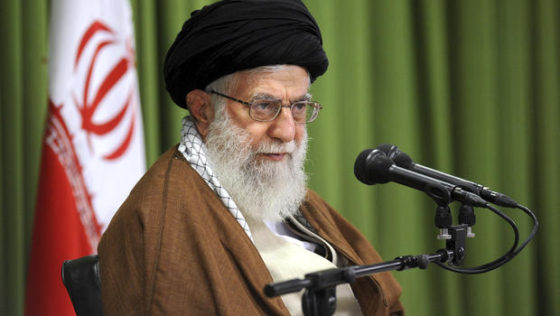This article was originally published by Tho Bishop at The Mises Institute.
This past weekend, the world witnessed absolute barbarism play out as Hamas agents brutally targeted Israeli civilians. The State of Israel, suffering from a historic failure to protect its residents, has predictably responded with major military operations in the Gaza strip. The result is a growing regional conflict fueled by historic feuds beyond the scale of traditional geopolitical considerations.
Add to this the ongoing war in Ukraine, a less-talked-about conflict between Armenia and Azerbaijan, and the threat of renewed fighting between Kosovo and Serbia, and the world is witnessing the breakdown of a global order established by modern assumptions that are being exposed.
In the later part of his career, Murray Rothbard identified the Whig theory of history as one of the most dangerous intellectual traps in existence. The general belief that society is in a constant march toward progress, that newer ideas reflect a natural upgrade over past wisdom, has been accepted by broad segments of the modern intellectual class. As Hans-Hermann Hoppe has critiqued, this theory underlies a number of modern assumptions about the world.
Whig hubris has resulted in a global order that has sowed the seeds of barbarism. The triumph of fiat money has created an economic system that enriches states and the politically connected at the expense of the rest of society. Technocratic public health initiatives created authoritarian states in the face of a global pandemic. Politically driven climate hysteria has prompted a policy agenda that is gambling away human well-being on utopian promises of a “green energy” revolution.
The deadliest of these false assumptions has been the modern “rules-based international order” guided by post–Cold War US hegemony. The triumph of “liberal democracy” over the Soviet Union fueled the hubris of Washington and its allies—their belief that the world could be shaped to fit into comfortable models, that concerns over ethnicity, religion, and the past could be transformed by the power of economics and intellectual change.
By this thinking, Afghanistan and Iraq could be transformed with just the right mix of warfare and pocket constitutions. Russian ambitions could be blunted with the right mix of regional defense treaties and economic relations. China would adopt Western liberalism with enough global trade.
Underlying these assumptions of US power has been the triumph of the dollar, which has financed the American empire and become the foundation of the global economy. With US debt as the most reliable financial asset in the world, America has enjoyed the privilege of incredible soft power in dealing with major nations, allowing its military focus to be directed at nonstate terrorist groups and “rogue state” allies.
This belief in a global order backed by American economic and military power, limited only by political will, has influenced how other global actors have operated. Foreign lobbies have dedicated vast resources to Washington. While the influence of the Israel lobby is the most visible, with politicians vocally pledging their allegiance to the Jewish state, since 2016 nations like Qatar, Saudi Arabia, China, Japan, South Korea, and others have also invested hundreds of millions of dollars in influencing American policy.
Assumptions of American support have undoubtedly influenced nations’ strategic decisions about their own security. Ukraine surrendered Soviet nuclear weapons in exchange for Western security promises, which for a long time may have served as a potent deterrent to a Russian invasion. The government of post–World War II Japan demilitarized in exchange for its own security guarantees from the United States. With rising concerns over China, Washington and Tokyo have pivoted toward rearmament.
Decisions made by the State of Israel have also been guided by false assumptions, such as the belief that militant movements would be easier to delegitimize internationally than other political actors seeking to create a Palestinian state. As the Wall Street Journal reported in 2009:
“Hamas, to my great regret, is Israel’s creation,” says Mr. Cohen, a Tunisian-born Jew who worked in Gaza for more than two decades. Responsible for religious affairs in the region until 1994, Mr. Cohen watched the Islamist movement take shape, muscle aside secular Palestinian rivals and then morph into what is today Hamas, a militant group that is sworn to Israel’s destruction.
Instead of trying to curb Gaza’s Islamists from the outset, says Mr. Cohen, Israel for years tolerated and, in some cases, encouraged them as a counterweight to the secular nationalists of the Palestine Liberation Organization and its dominant faction, Yasser Arafat’s Fatah.
A look at Israel’s decades-long dealings with Palestinian radicals—including some little-known attempts to cooperate with the Islamists—reveals a catalog of unintended and often perilous consequences. Time and again, Israel’s efforts to find a pliant Palestinian partner that is both credible with Palestinians and willing to eschew violence, have backfired. Would-be partners have turned into foes or lost the support of their people.
Israel’s experience echoes that of the U.S., which, during the Cold War, looked to Islamists as a useful ally against communism. Anti-Soviet forces backed by America after Moscow’s 1979 invasion of Afghanistan later mutated into al Qaeda.
As Israeli officials have acknowledged, American military support, which became a staple of US foreign-aid military strategy following the Six Days War in 1967, has influenced Israel’s aims for Palestinian relations.
Similarly, as the WSJ article mentions, the belief that nonstate Islamic groups would be easier to control than functional states has been an ongoing and consistent blind spot for Washington. The toppling of Saddam Hussein and Muammar Gaddafi created power vacuums in the Middle East that were filled by the Islamic State and other jihadist groups.
Recognizing these government blunders of the past should not be confused with providing moral cover for the horrific consequences suffered by the citizens of these states. Understanding the cause and effects of state action on innocent people is important in shaping future decisions so as to avoid such disasters in the future.
The unfortunate reality is that the global order—one built on the assumption that American blood and treasure can single-handedly maintain stability and peace—is under severe stress. The poor foundation is beginning to crack. In September 2001, the US debt reached $3.4 trillion. In 2023, it stands at over $34 trillion. The Pentagon’s virtually nonexistent oversight of the American military budget has contributed to gross malinvestment and misallocation of resources. In modern conflict, million-dollar weapons have been destroyed by cheap drones, not a small concern as US aircraft carriers head to the Middle East.
The breakdown of the old order also means that we should expect new behavior from states adapting to the times. Israel, for example, has ended previous campaigns against Hamas following international pressure resulting from civilian casualties, which has shaped how the Islamic group positions its military and arms. Will similar condemnation come following the most recent attack? Will Israel care? What paths exist for deescalation?
Additionally, the hubris created by the presumption of dollar dominance, which has factored in the weaponization of the dollar, has sparked a blowback of its own. The BRICS nations have recently called for alternatives to the dollar for foreign trade, and even the Bank of England has raised concerns about the power and influence the dollar gives Washington. Concerns about China and supply chain disruptions due to both covid and the Ukraine-Russia war have sparked renewed concerns over how close international trade relations should be, which could further impact economic globalization.
Domestically, Western nations are also being stressed by another false assumption of modern states—the deemphasis of a common ethnic, religious, and cultural background as a building block of society relative to immigration policy. Large rallies in support of the “decolonization” of Israel, fueled by social justice ideologies that equate the cause of Hamas with the perceived victimization of other minority groups, have sparked new concerns about social stability and order. How modern nations, whose most shared experience is becoming a common tax collector, will fare in a time of crisis will continue to be a potent political question going forward, as witnessed by the growing populist movements in Europe.
History shows that periods of crisis can radically transform the global order. Following World War II, Ludwig von Mises called for a global embrace of sound money, government restraint, and cultural conservatism. Unfortunately, the West embraced the ideologies of inflationism, interventionism, and cultural leftism instead. Without a correction, Mises warned, assumptions of ever-improving material well-being would be found wanting.
As he wrote in Planning for Freedom, “It is not true that human conditions must always improve, and that a relapse into very unsatisfactory modes of life, penury and barbarism is impossible.”
The recent attacks in Israel are a horrific reminder of how lightly guarded civilization is from savagery.









0 Comments